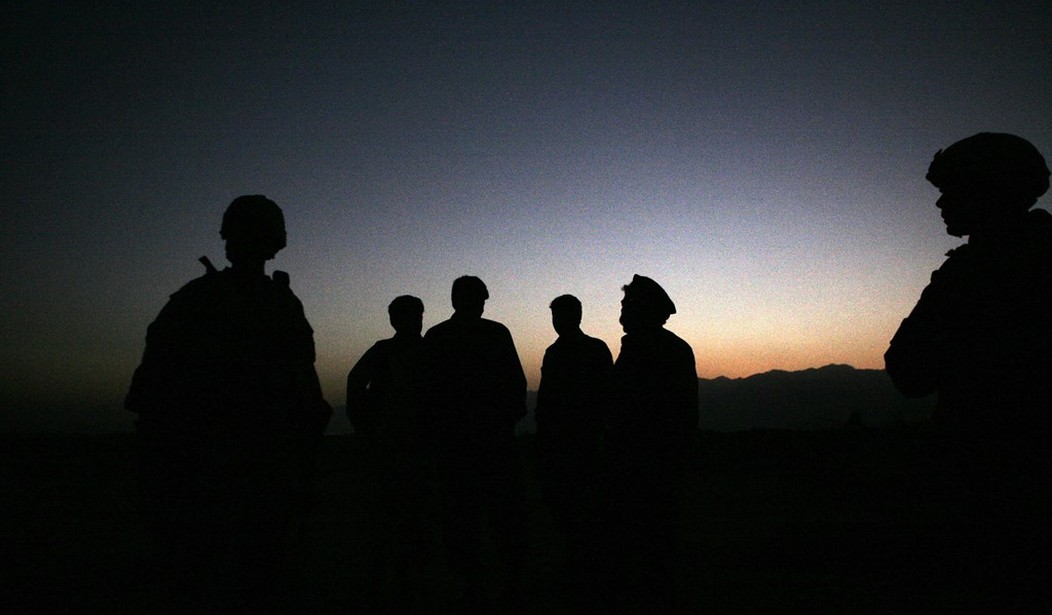There was no official notice provided as to when the bulk of our forces in Afghanistan would be bugging out, but it seems to have happened last night. The United States and any remaining allied forces at Bagram Airfield, located north of the capital city of Kabul cleared out last night. The airfield was the center of the allied military presence in Afghanistan, just as it had been for the Soviet Union back when they built the base during their occupation of the country. There are still some of our troops at the U.S. Embassy building in the capital and others coordinating with Turkey’s troops to protect Hamid Karzai International Airport. But aside from that, we seem to be out. This came as a surprise to Darwaish Raufi, the Bagram district administrator, who suddenly found himself in charge of the facility with no prior notification that it was happening. (Associated Press)
After nearly 20 years, the U.S. military left Bagram Airfield, the epicenter of its war to oust the Taliban and hunt down the al-Qaida perpetrators of the 9/11 terrorist attacks on America, two U.S. officials said Friday.
The airfield was handed over to the Afghan National Security and Defense Force in its entirety, they said on condition they not be identified because they were not authorized to release the information to the media.
One of the officials also said the U.S. top commander in Afghanistan, Gen. Austin S. Miller, “still retains all the capabilities and authorities to protect the forces.”
As I said, the Bagram district administrator seemed shocked to find out that the last of our troops were gone and he was suddenly in charge. The departure took place without any coordination with local officials. He’s quoted as saying, “Unfortunately the Americans left without any coordination with Bagram district officials or the governor’s office. Right now our Afghan security forces are in control both inside and outside of the base.”
Clearly, somebody noticed that we were leaving. Shortly after the American troops were gone, a group of what are being described as “local looters” numbering in the dozens stormed the gates and began pillaging several buildings on the base. The Afghan forces eventually rounded them up and ejected them after making a few arrests.
It shouldn’t be too surprising that we left in the dead of night without coordinating our exit with the locals. While American officials have traditionally hated to admit it, our Afghan allies in both the local government and the military are rife with spies and saboteurs who coordinate with the Taliban against us. If we had coordinated our exit with them, the Taliban might have been ready to launch an attack on the departing forces. Still, this likely won’t be going down in the history books as one of our proudest moments.
The big question is what happens now in terms of the remaining U.S. troops at the embassy and the airport. Getting them out safely may prove more tricky than some had originally anticipated.
This sudden exit has left many Afghans feeling frightened and alone. Reports overnight indicated that people were already lining up by the thousands to apply for passports or pay smugglers to get them out of the country as quickly as possible, fearing the civil war to come. One of the most common destinations is Turkey.
Afghans are lining up by the thousands at the Afghan Passport office to get new passports, possibly to leave, uncertain what tomorrow will bring.
Salia Siddiqi sat under a tree with three of her seven children, one of thousands of people at the passport office. She was waiting to submit her papers for her family’s passports, though she wasn’t sure whether she’d be able to travel or how even to afford it.
“There is no security anywhere. You can’t travel to the provinces,” she said. “It’s not about me but what about my children? I don’t know if they will have a future here. We think there will be violence, it will be a dark time.”
We’ve been in Afghanistan for so long that an entire generation has grown up only knowing the security offered by the American presence. Many of them will be viewed as having cooperated with the Americans or at least having been friendly to us. And when (not if) the current government falls to the Taliban, those people are going to be in a lot of trouble. The same goes for all of our translators and helpers who didn’t manage to secure visas and get out before we left.
We appear to be nearing the final chapter in the story of America’s forever war, but it’s not quite finished yet. And from the sound of things, that last chapter is going to be dark, with no happy ending in sight.







Join the conversation as a VIP Member